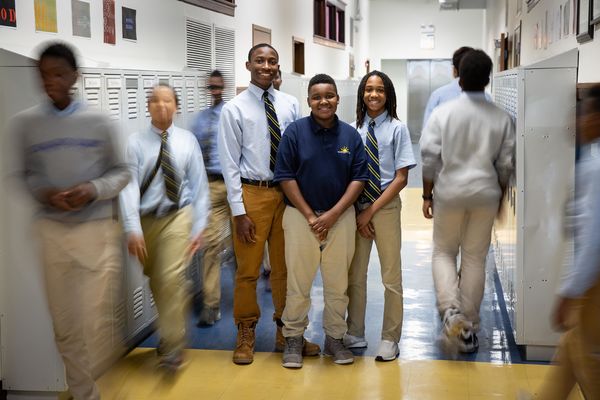For our latest blog series, we talked with three LEO stakeholders from the worlds of academia, philanthropy, and policymaking to get their take on where we need more evidence for smarter decision-making, better services, and increased access to resources. Read the other two stories: early childhood education and policymaking.
--
Fewer Americans are religious than ever before, leaving Catholic schools with an existential crisis: find a way to broaden their appeal, or face inevitable decline. But according to Anthony Pienta, their biggest issue isn’t American religiosity, but bad communication. After all, Catholic schools consistently deliver a high-quality education to a diverse student base, for less money than public school counterparts.

As Executive Director of the Altum Fund, a foundation that grants funding to organizations that need it, Anthony wants to know how Catholic schools can better understand and communicate their value. The underlying tenets of Catholic education remain surprisingly relevant: high-quality academics mixed with social teachings that call for compassion and justice. But these principles are often buried under public misconceptions about religious education and the changing standards for how parents decide where to send their children to school.
One large difference between private Catholic schools and public schools is how and when they share data. While public schools are required to release data on academic performance, demographics, and other comparable indicators, private institutions can decide for themselves what they publish. This, more than their religious affiliation, is what’s hurting Catholic schools, Anthony says. Many parents will look at those data before sending their child to a school, and the absence of it can be a deterrent.
Fortunately, this problem is easily addressable, and the Altum Fund is helping to make data sharing both possible and attractive. Although struggling schools have reasons to be hesitant around sharing performance, Anthony believes it ultimately helps private schools improve on weaknesses in the long run. Parents would in turn appreciate being able to see the data and make an educated decision.
Using donations to fund a study, Altum sought to answer what factors discouraged parents from sending their kids to Catholic schools. While some of the findings were predictable, others were surprising. For example, the primary factor that deterred parents was the cost of tuition. However, many of the parents in the study were unaware of financial aid opportunities. Once informed, parents were 80% more likely to send their child to a Catholic school.
Another misconception about Catholic education is that religious formation trumps educational outcomes. Not only do Catholic secondary schools graduate 99% of their students, 88% of alumni attend four-year colleges. Altum is arming Catholic schools with toolkits which highlight what parents care about most: the educational achievements of graduates.
Anthony’s experience in philanthropy has given him a unique viewpoint on how research impacts organizations receiving grants. Catholic schools can no longer rely solely on students from religious families alone; they must appeal to a broader set of potential attendees who care more about results than faith. Anthony believes evidence plays a key role in attracting people of all beliefs into Catholic education—the Altum Fund is up for the challenge.